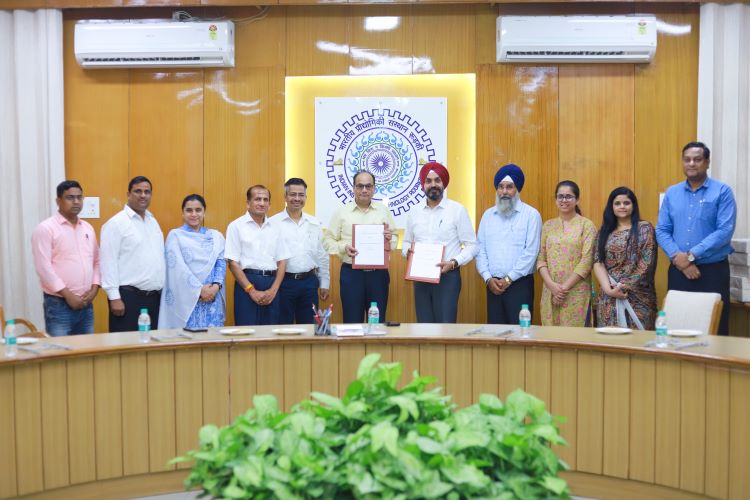Team L&M
A team of researchers at the Indian Institute of Technology, Roorkee (IITR) has developed a coating for disposable paper that is water soluble and will be used in various applications with requirements of food freshness retention and replace plastic coatings commonly used in food-grade packaging papers and paperboards. The innovative coating formulation aims to eliminate the use of plastic in disposable paper and paperboard products, contributing to a cleaner and more sustainable society. By enabling the recycling of disposable products, this technology has a significant positive impact on the environment, improving waste material collection and reducing the burden on landfill sites. The team includes Prof Dharam Dutt, Prof Millie Pant, Prof Akshay Dvivedi, Dr Anurag Kulshreshtha and Mr Brahma Prakash
IITR has transferred this technology to M/s MS Papers, New Delhi, for commercial application. Says Ms Papers MD Gurmeet Singh, “This is an intrinsic part of the technological innovation process, and we are thankful to IIT Roorkee for the technology transfer. The demand for ‘sustainable paper and paperboard packaging’ has exerted substantial pressure on producers to eliminate barrier coatings that employ polyethene, paraffin-based waxes, silicones, and fluoro-chemicals, and switch to more environmentally friendly options.”
Adds IITR Director Prof KK Pant, “We are delighted to transfer this breakthrough technology for an environment-friendly coating for the disposable paper to M/s M S Papers. This collaboration reflects our commitment to protecting the environment and supporting the Micro, Small, and Medium Enterprises (MSME) sector. This is our way of contributing to a cleaner and more sustainable society. This technology addresses environmental concerns and transforms disposable paper waste into recyclable materials, reducing solid municipal waste and promoting a circular economy. This transfer will significantly impact society, aligning with our vision of a cleaner and greener India.”
The breakthrough technology will be a significant milestone in reducing solid municipal waste and transforming disposable paper and paperboard materials into recyclable ones, which is currently a considerable challenge. The technology addresses environmental concerns and resolves recycling issues associated with disposable paper waste, converting it into value-added products. Considering the environmental hazards, many countries, including India, have taken steps to ban “Single-Use Plastics”.
